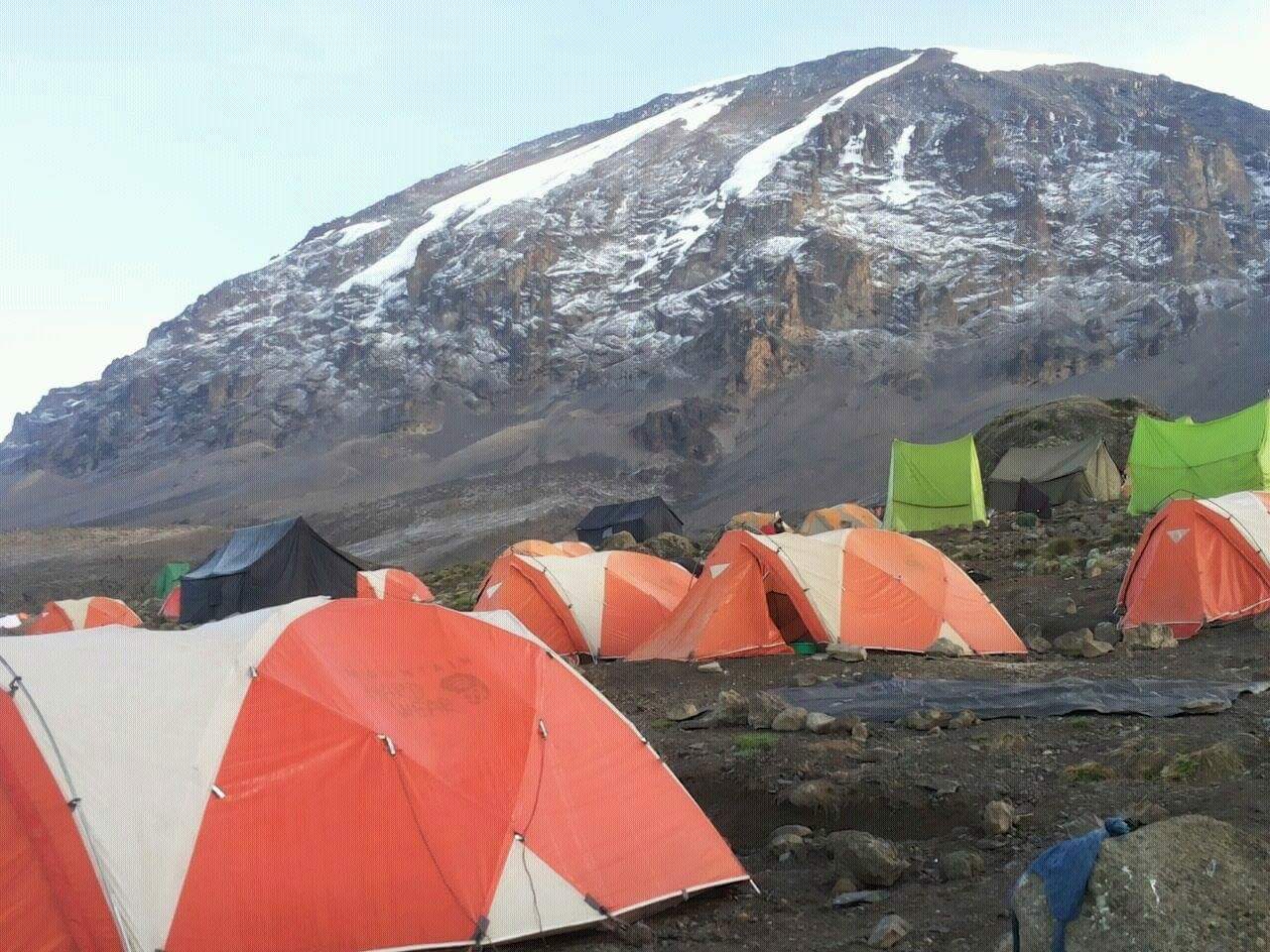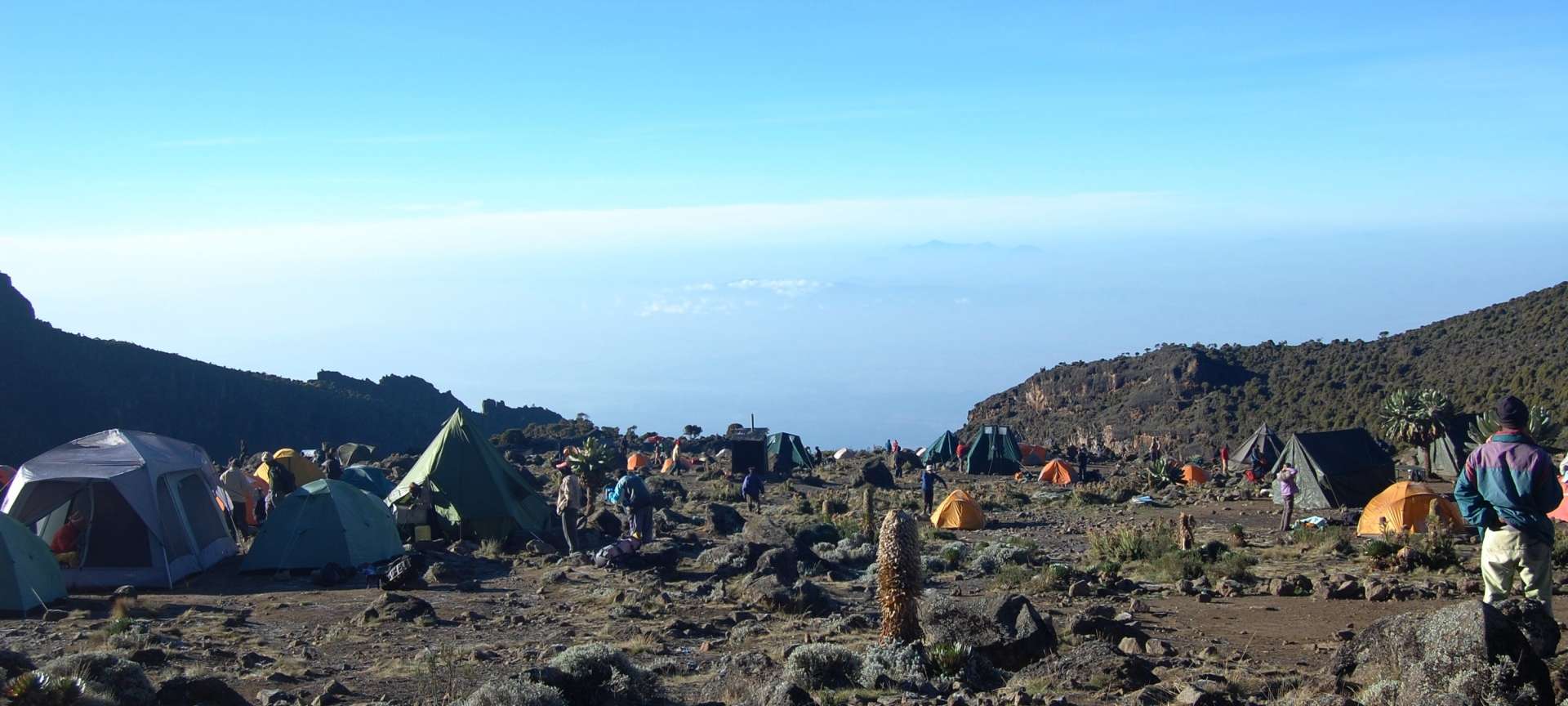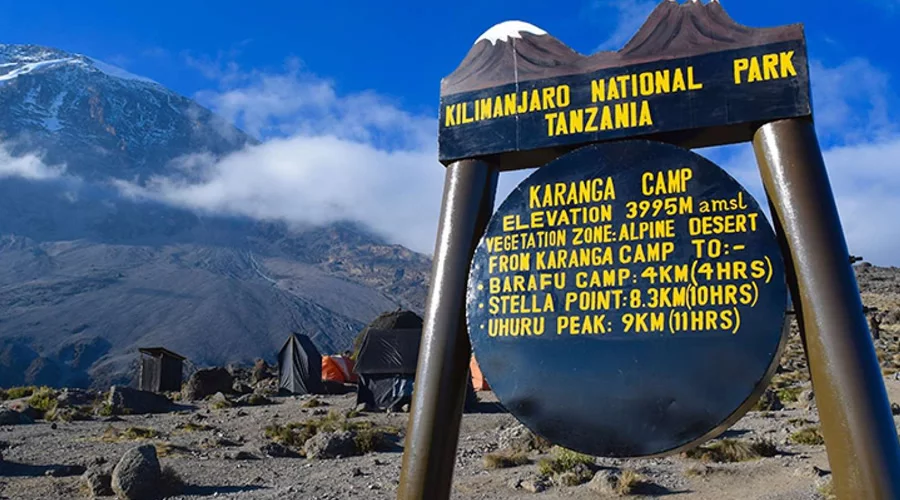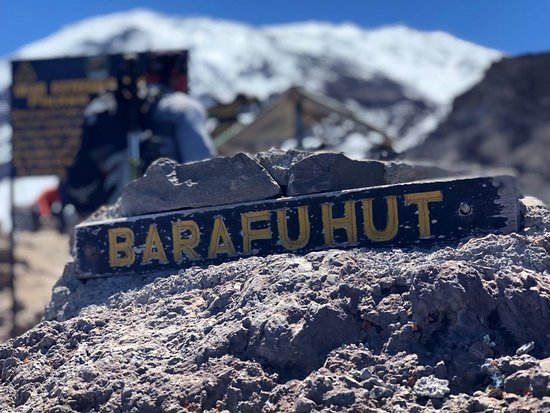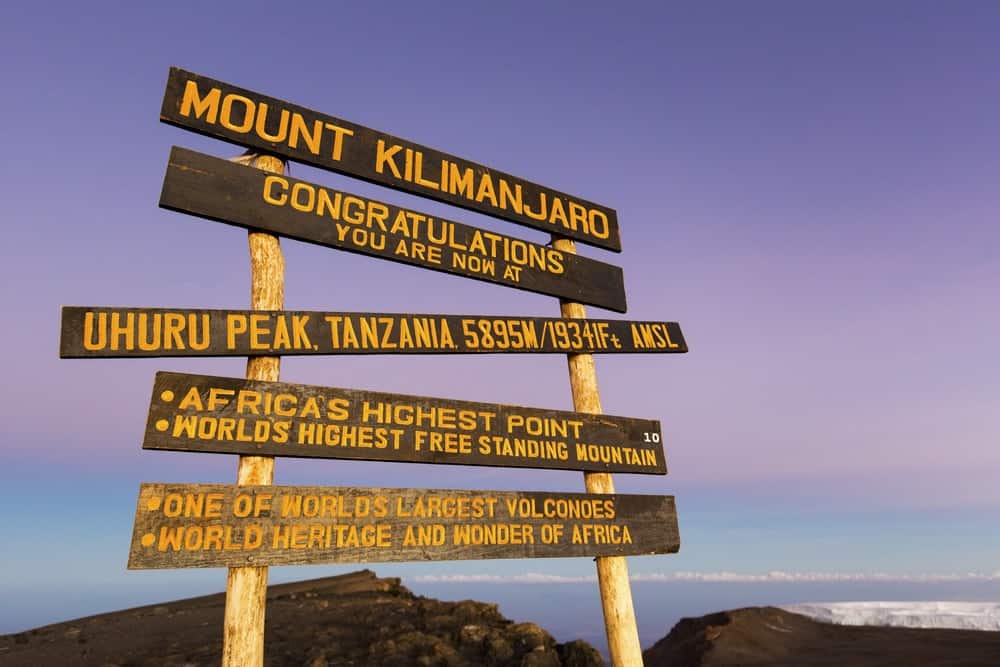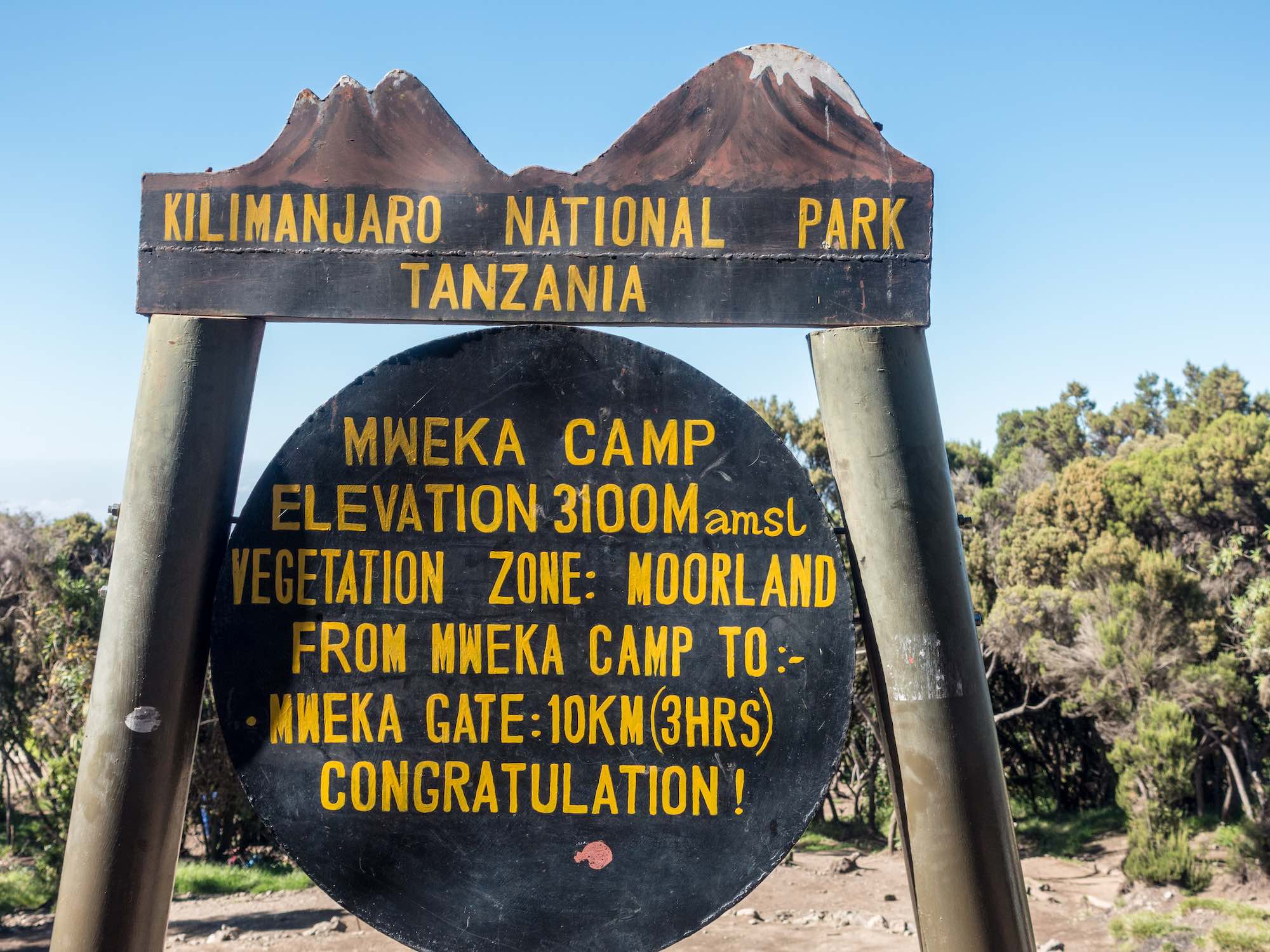6 Days Kilimanjaro Trek Umbwe Route
6 Days Kilimanjaro Trek Umbwe Route
- Adult
- Child
The 6 Days Kilimanjaro Trek Umbwe Route challenges climbers with its difficulty, making it less popular among first-timers. As one of the most strenuous routes on the mountain, it demands significant physical endurance and mental fortitude. Moreover, this route lacks adequate acclimatization stages, which can complicate a rapid ascent to high altitudes. Consequently, climbers experience lower summit success rates compared to other routes.
However, the Umbwe Route offers a unique advantage: its remoteness. Since it rarely sees traffic, you can enjoy the solitude and tranquility of the mountain. Even during peak seasons, breathtaking landscapes await you without the congestion that other trails often face.
As you trek along the Umbwe Route, stunning scenery unfolds, including lush rainforests, rocky terrains, and spectacular views of Mount Kilimanjaro. The low foot traffic allows you to connect intimately with nature, enhancing your trekking experience. Additionally, fewer crowds provide an excellent opportunity for wildlife spotting, as the area is home to diverse flora and fauna, including Colobus monkeys.
While the 6 Days Kilimanjaro Trek Umbwe Route may not be the easiest path, it rewards adventurous souls willing to embrace its challenges. Prepare for a memorable journey filled with incredible landscapes and personal triumphs. For more information about climbing routes, visit our Kilimanjaro treks, safaris, and Zanzibar tours.
Duration
6 Days
5 Nights
Tour Type
Mid-Range
Language
English, Germany, Spain
Highlights
- Before your Kilimanjaro excursion, make sure you have tried and actually used your hiking boots and shoes to avoid blisters on your feet, and consider bringing insoles and suitable socks.
- Trekking poles will become your best friend, and some trip operators may include them in your tour ticket; nonetheless, it is recommended that you go on a few hikes beforehand to get used to them.
- Make a packing list and double-check that you have everything you need before leaving; rentals will be available from certain operators, but you don’t want to be caught short on anything vital.
- Drink as much water as you physically can to help minimize the symptoms of altitude sickness (AMS).
- Most importantly, enjoy your expedition and take in the scenery
Travel Itinerary
Umbwe Gate to Umbwe Camp
Elevation: 5,249 ft to 9,514 ft Distance: 11 km/7 miles Hiking Time: 5-7 hours Habitat: Heath The first day of your 6-day Umbwe climb starts with a 50-minute journey to Machame Gate, where you’ll finish your registration paperwork. After that, we travel to Umbwe Gate via villages and coffee and banana fields. On a forestry track that weaves through the lush rainforest, the route ascends quickly. As we approach the slope between two rivers, which is encircled by massive trees, the trail narrows and steepens. Umbwe Camp is nestled in the thickets of forests.
Umbwe Camp to Barranco Camp
Elevation: 9,514 ft to 13,044 ft Distance: 6 km/4 miles Hiking Time: 4-5 hours Habitat: Heath The second day of the hike takes you through more rugged terrain with scant vegetation and moss-covered trees. As we climb higher, we have a better view of Kilimanjaro. As we reach Barranco Valley, the terrain flattens out. The trail descends from Umbwe Ridge to Barranco Camp via the unusual yet magnificent Senecio Forest.
Barranco Camp to Karanga Camp
Elevation: 13,044 ft to 13,106 ft Distance: 5 km/3 miles Hiking Time: 4-5 hours Habitat: Alpine Desert Day 3 of the Umbwe trek begins with a descent through a gully to the Great Barranco Wall’s base. Then we ascend the almost 900-foot cliff, which is non-technical but steep. We descend quickly into Karanga Valley from the top of the Barranco Wall, passing through a succession of hills and valleys. Karanga Camp is reached after a final difficult ascent. This is a shorter day designed to help you acclimate.
Karanga Camp to Barafu Camp
Elevation: 13,106 ft to 15,331 ft Distance: 4 km/2 miles Hiking Time: 4-5 hours Habitat: Alpine Desert We leave Karanga and arrive at a juncture with the Mweka Trail. We proceed up to Barafu Hut’s difficult portion. You’ve finished the Southern Circuit, which provides views of the summit from a variety of perspectives. To prepare for the summit day, we set up camp, rest, and have an early dinner. From this vantage point, the Mawenzi and Kibo peaks may be seen.
Barafu Camp to Uhuru Peak - Summit Day
Elevation: 15,331 ft to 19,341 ft Distance: 5 km/3 miles Hiking Time: 7-8 hours Habitat: Arctic We start our ascent to the peak quite early in the morning (about midnight). This is the trek’s most psychologically and physically demanding section. At this elevation and time of day, the wind and cold may be brutal. We climb for many hours in the dark, taking frequent but brief stops. You’ll be rewarded with the most spectacular dawn you’ll ever see rising over Mawenzi Peak around Stella Point (18,900 ft). Finally, we reach Uhuru Peak, which is the highest point on Mount Kilimanjaro and the African continent.
Uhuru Peak to Mweka Camp
Elevation: 19,341 ft to 10,065 ft Distance: 12 km/7 miles Hiking Time: 4-6 hours Habitat: RainForest We now descend from the peak, heading straight down to the Mweka Hut camp site, pausing for lunch at Barafu. The terrain is rough and difficult on the knees; hiking poles are recommended. Mweka Camp is located in the higher forest, so expect mist or rain in the late afternoon. We had our final meal on the mountain and a well-deserved rest later that evening.Mweka Camp to Mweka Gate
Elevation: 10,065 ft to 5,380 ft Distance: 10 km/6 miles Hiking Time: 3-4 hours Habitat: Rain Forest We continue our descent to Mweka Gate on our final day and obtain our summit credentials. It can be muddy and damp at lower levels. We go another hour from the gate to Mweka Village. At Mweka Village, a van will be waiting to take us back to the hotel in Moshi. This marks the end of our brief 6 day Umbwe Route trek on Mount Kilimanjaro
Frequently Asked Questions
Let’s clarify your confusions. Here are some of the Frequently Asked Questions which most of our client asks.
Have a question in mind
Looking for more info? Send a question to the property to find out more.
What is the location of the Umbwe route?
Is the Umbwe route difficult?
What is the Umbwe route’s success rate?
What should I bring and what will I need?
What are the directions to the Umbwe Route?
What climbing skills are required for the Umbwe route?
Tour Terms & Conditions
- All rates are subject to availability and may change without notice.
-
Single supplements may apply.
- Request a quote or speak to one of our African Safari Experts for the best, most current rates available.
- Availability is subject to change
-
Our rates are per person sharing unless we note differently. Please treat all pricing as a guide only
-
Required to pay 30% upon confirmation which is fully refunded if the booking is cancelled 61 days prior to arrival.
-
The remaining balance of 70% to be paid 45 days prior to arrival.
-
Funds can be paid through Credit Cards and bank Transfers

